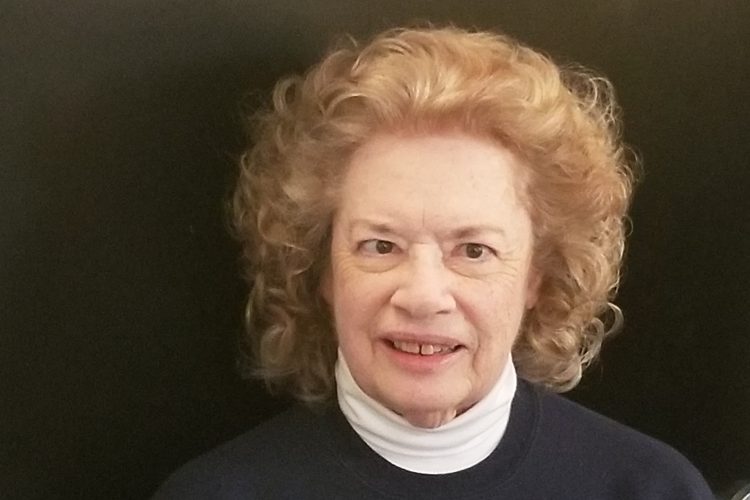Trudy Hoag ’70: Making history in 2 careers
Trudy Hoag ’70, a theater and English major, became an officer in the Navy the day after she graduated from Cornell. Impelled by a strong sense of duty and the prospect of eventual funding for graduate school, she signed up as a junior for a special program for women, who were barred from entering the Naval Academy or ROTC. Her training began that summer.

She was the only graduating senior to make this career move, and she did it at a time when college students everywhere, including at Cornell, were protesting the war in Vietnam.
She was not sent to Vietnam. Instead, she followed an administrative track. Assignments included handling top secret documents at the Pentagon, supervising motion picture productions in Los Angeles, inspecting communications and living conditions on ships, and managing staff at training centers in San Antonio and San Diego. At least four times in her 20-year career she assumed leadership positions that had never been held by a woman. She was, for example, the first woman to command the 1,000-person Second Regiment of the Service Schools Command in San Diego.
“We became groundbreakers for the modern Navy,” Hoag said, describing all women officers at the time. “Massive change was underway. It wasn’t easy. The hardest part was dealing with men who thought women couldn’t do the job. But we knew that every time we succeeded we opened doors for others. I was constantly learning; you simply had to keep learning.”
Along the way, thanks in part to night classes, she earned her master’s degree in English and American literature at the University of California San Diego.
Her final position was as an associate professor at the University of Minnesota, where she taught leadership and management courses to men and women in ROTC—the very organization that had no place for women when she was a student. Hoag retired in 1991 with the rank of commander (equivalent to an Army lieutenant colonel).
“Serving in the Navy was one of the best things I’ve ever done,” she said. “I still feel bound by my oath.”
Following her Navy days, Hoag settled in a Minneapolis suburb and started a second career as an actor and musician (she sings and plays the violin and English handbells). This led to jobs totaling more than 20 years in historic interpretation at four living history sites. She planned events, trained staff members, and portrayed both historical and fictional characters—“laundresses, cooks, school teachers, storekeepers, dressmakers, immigrants, farm wives, leather workers, you name it,” she said. All had to be represented accurately, requiring extensive study.
Hoag has become more connected with Cornell in recent years, helping plan her class’s 50th reunion. She credits her grounding in the humanities with providing the basic skills she used daily in the Navy and in her theatrical career.
“I entered Cornell an over-protected only child from Waterloo, Iowa, and left it as a naval officer ready to learn more about the wider world.”
Dan Kellams ’58 is a former member of the Cornell College Alumni Association Board of Directors. His career spanned nearly 50 years in public relations in New York City, where he worked as a corporate and agency executive and, later, as a freelance writer and editor. He has written two books set in his hometown of Marion, Iowa.



